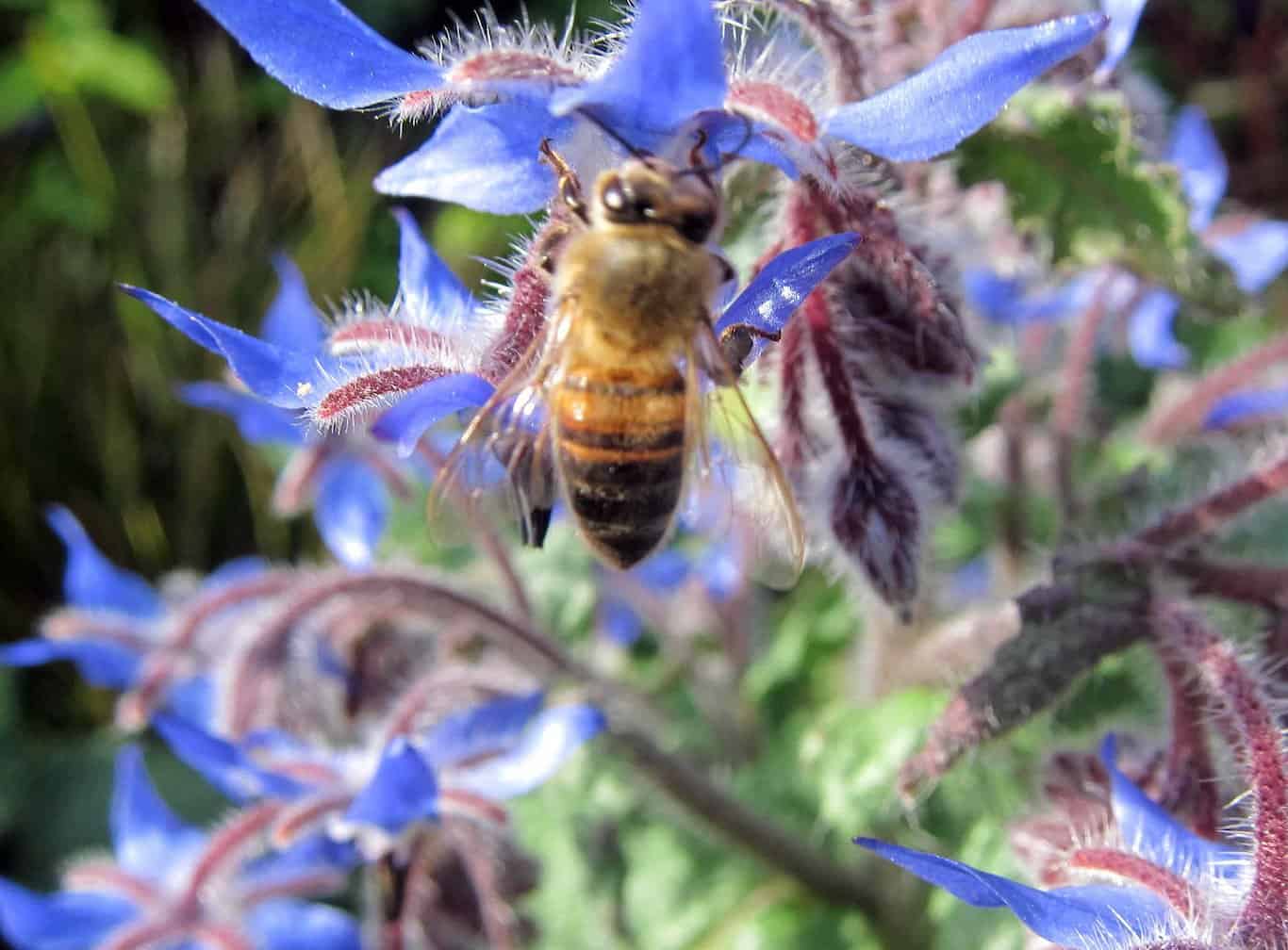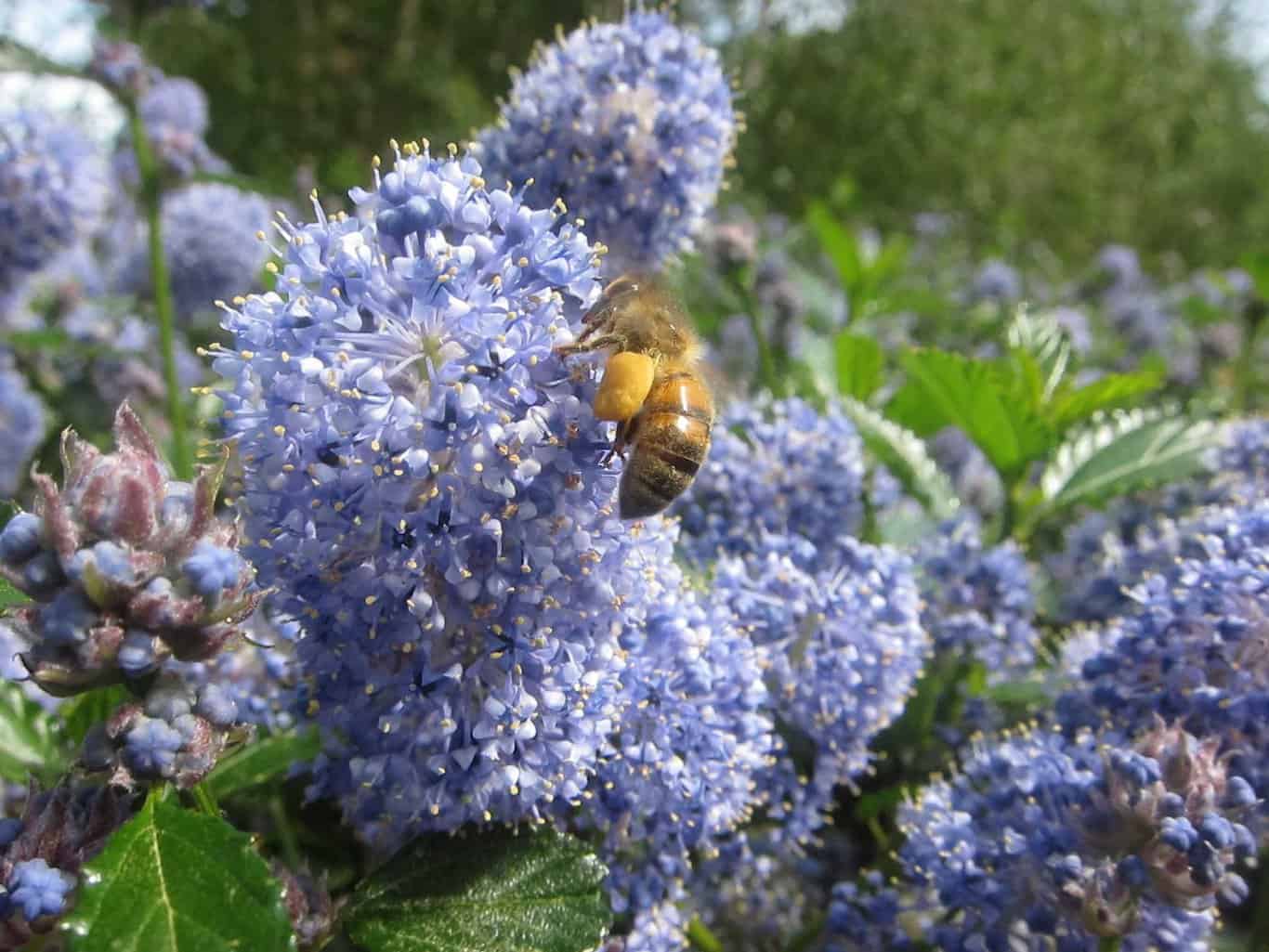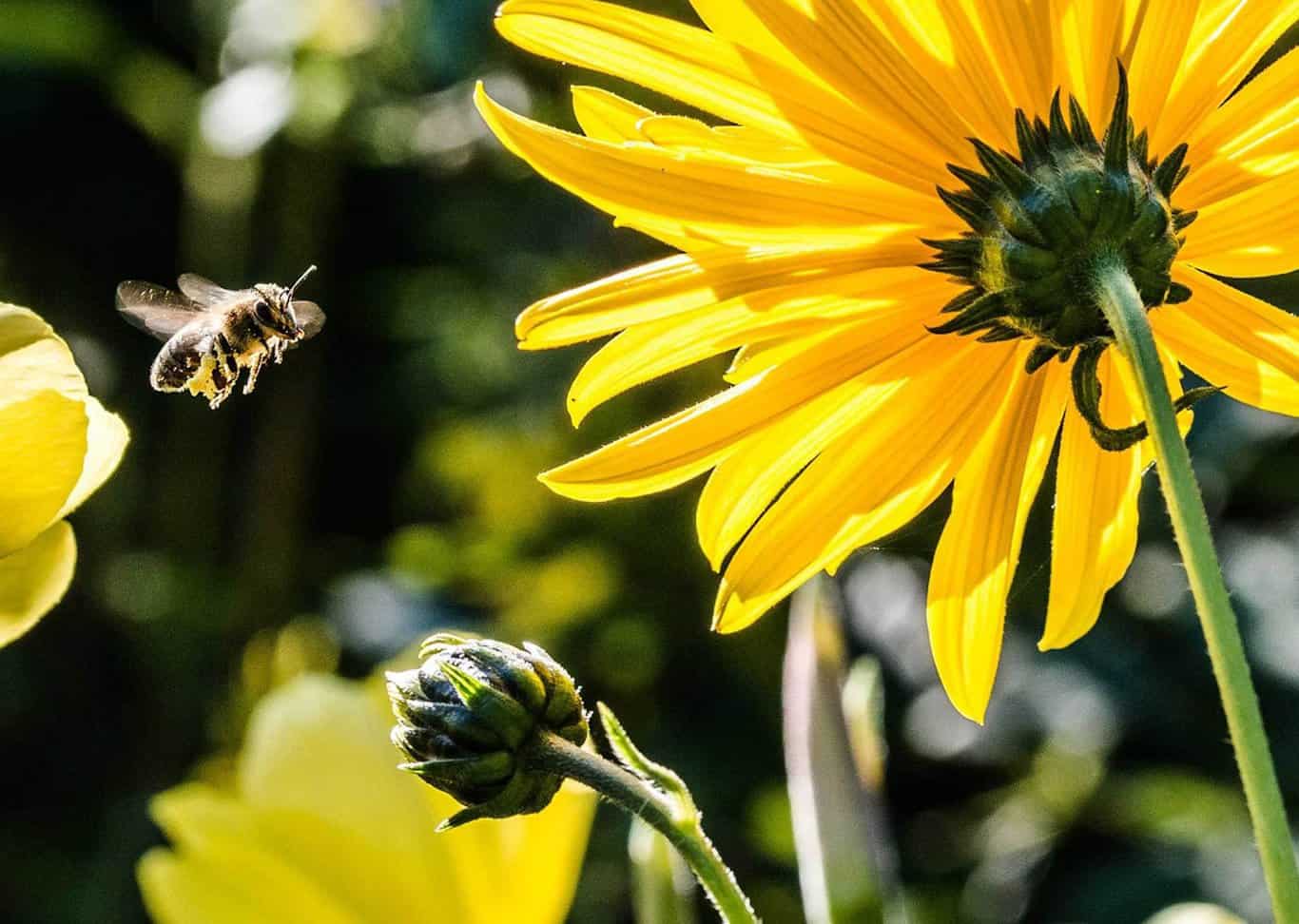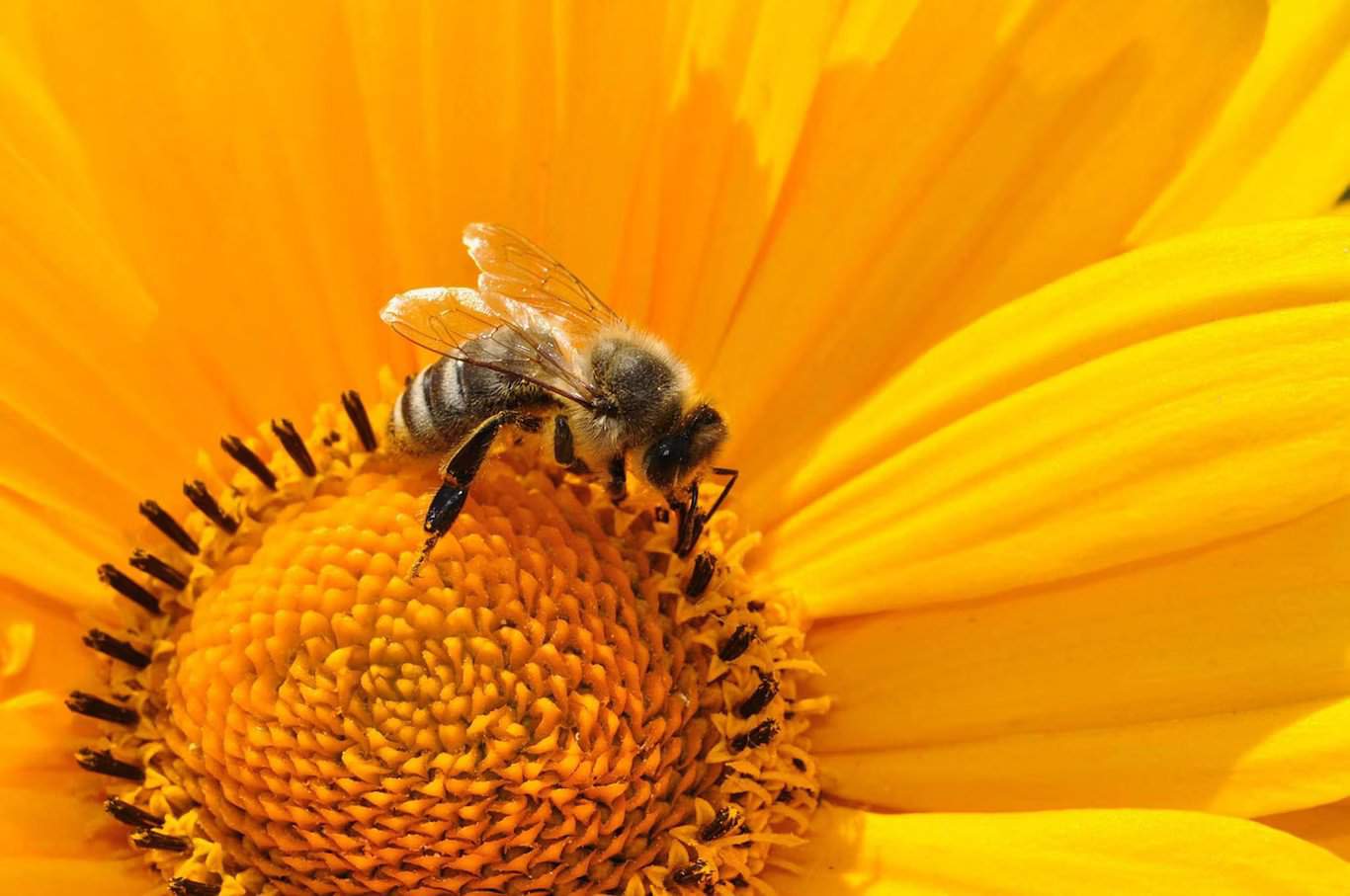Honeybees are in decline, we all know that. Rising temperatures, chemical usage and loss of environments are all killing off one of the species we depend most on to survive.
They are our biggest pollinators, up to a third of all our crops rely on them buzzing between flowers so their decline is a global threat to our food sources.
Want to help? Scattering the odd packet of wildflower seeds isn’t going to cut it, but there are easy things to do to help our nectar-nuzzling friends.
Sarah Wyndham Lewis from the award-winning Bermondsey Bees has come up with these simple steps to create a bee-friendly garden.
How To Create A Bee-Friendly Garden

1. Quantity, quality and variety
Plentiful supplies of varied forage are essential to help honeybees withstand the external stresses of disease and environmental factors.
A single beehive needs to gather around 50kg of pollen and 200 kg of nectar every year just to survive.
2. Four season planting
Although March to September are key months for honeybees, they will fly whenever the temperature is above 10°C, even in the depths of winter. So early and late flowering plants are especially valuable.
Choose June flowering species too – bees often have to cope with a ‘food gap’ at that time of year.
Bee-friendly plants for every season:
- Spring: apple trees, pussy willow, lungwort, crocus, marjoram, hawthorn, flowering cherry, cowslips, daffodils, bluebells
- Summer: forget-me-not, strawberry, chives, phacelia, monarda, hawthorn, lavender, comfrey, foxgloves, echinops, buddleia
- Autumn: abelia, honeysuckle, sedum, perennial wallflower, sage, broad bean, white deadnettle, yarrow
- Winter: snowdrops, mahonia, ivy, winter aconite, rosemary, raspberry, lesser celandine, hellebores
3. Mow less and love weeds
Many so-called ‘weeds’ provide precious forage.
Mow lawns, but less often and leave some areas to grow wild.
This bee-friendly garden design encourages useful species to grow, such as daisies, trefoil, clovers and especially dandelions which are a vitally important early-season nectar source.
Read more: Save The bees: Don’t Be An Urban Beekeeper

4. Bees see blue
Bees see into the ultra-violet spectrum, which makes blue, purple and white plants especially attractive to them. Red flowers are the least attractive.
5. Flower fidelity
Uniquely, honeybees only visit one type of flower in any one foraging trip. This is called ‘flower fidelity’ and is what makes them such effective pollinators.
By planting large clumps or ‘drifts’ of single species you can save the bees’ energy and optimise each of their trips.
6. The wildflower question
True wildflower meadows need large areas and specialist management including careful species choice and scheduled mowing.
Although planting wildflowers is useful as an add-on, you can usually make far better planting choices to provide longer-lasting, more structural forage.
Read more about sustainable gardening: Eco-Friendly Tips For Growing Your Own Veg At Home

7. Don’t forget about bushes and trees
A single lime (linden) tree in flower provides the same amount of forage as 3,000 sq metres of wildflowers.
If space allows, bee friendly plantings should start with a framework of durable, year round forage from bushes and trees.
8. Keep it simple
With shorter tongues than bumblebees or butterflies, honeybees often can’t feed on complex flower structures.
Showy, highly-bred ornamental flowers give minimal forage.
Generally, stay close to the original, simpler forms of flowers where the nectar and pollen are easily accessible.
9. provide shelter
Sheltered shady corners make ideal homes for bumblebees.
Add a few broken plant pots to out of the way areas of your garden.
You could also encourage bee diversity by making or buying a bee hotel to accommodate Mason bees, Leafcutter bees and Yellow-faced bees.
These bees are non-aggressive and safe for your garden.
Read more: How to Increase Biodiversity In Your Garden

10. Water, water
Bees don’t store water in the hive. They leave the hive to collect water, which they often choose from surprising sources (they’re rather fond of dirty water).
If you don’t have a pond, a bowl of pebbles full of rainwater provides a good stop off.
11. Garden organically
Read up on organic gardening techniques. If you must use chemicals, follow the manufacturer’s instructions to prevent overdosing. And of course, keep away from pesticides.
Follow these steps and you’re well on your way to creating a bee-friendly garden.
For more tips on how to get your garden buzzing for honeybees and pollinators, Bermondsey Street Bees has an in-depth guide. Check it out here.
Cover photo Jared Belson.










